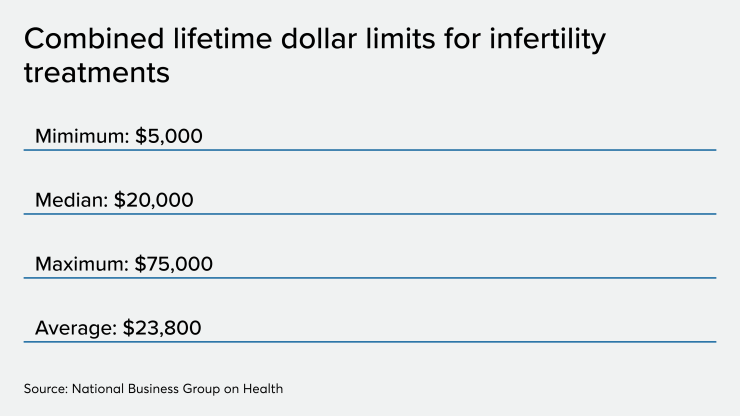Family-building benefits are increasingly in demand by employees and catching on as a necessary benefit among small businesses nationwide.
Much of the demand has to do with employees choosing to start families later in life, therefore increasing the need for assisted reproductive technologies. Larger tech and white collar companies have been early adopters of fertility programs, however small businesses are now adding a family-building benefit as they see the need to compete for top talent, improve employee productivity, and employee satisfaction.
There is also a learning curve for small businesses in understanding the costs associated with having a fertility and family-building benefit and how this benefit saves a small business money in the long run. A managed fertility benefit helps small businesses achieve these goals.
Small businesses offering a managed fertility benefit see an increase in satisfied and loyal employees and reduced medical costs on multiple fronts. With a managed fertility benefit, employees are connected to clinical experts who guide each employee through their own personal family-building journey, matching the patient to the most appropriate network doctors, medical treatments and lowest cost medications. Managed fertility programs eliminate wasteful spend for both the employer and employee.
With an unmanaged benefit, employees navigate their own path through a complicated fertility journey, spending their precious benefit dollars at their own discretion. An unmanaged benefit gives an employee access to company funds without any guidance on the most efficient and productive way to use those funds, dramatically increasing claim costs for the employer.
A managed benefit increases the likelihood of healthy, full-term singleton babies. The clinical oversight that comes with a managed solution decreases C-sections, pre-term births and Neonatal-ICU expenses.
An employee going through fertility treatment with an unmanaged benefit may result in twins, triplets or other high-order multiple gestations, which often is accompanied with long term healthcare costs. More than 20% of twins and 80% of triplets are born prematurely and require NICU care. Research shows that an average NICU admission can have a 20-day length of stay and cost between $40,000 and $80,000, a cost employer groups would certainly want to avoid.
Up to 40% of the overall fertility spend is attributable to pharmacy costs. A fertility benefit program with clinical oversight ensures the dispensing of only appropriate medications and quantities. When patients are educated on pharmacy dosage, storage and medication side effects it helps the employees maximize their fertility medication benefit.
In addition to the immeasurable benefits that come from happy, supported, and productive employees, small business employers who offer clinically managed fertility benefits eliminate wasted benefit dollars, while also improving the quality of care and reaffirming a commitment to supporting employees and their families.






